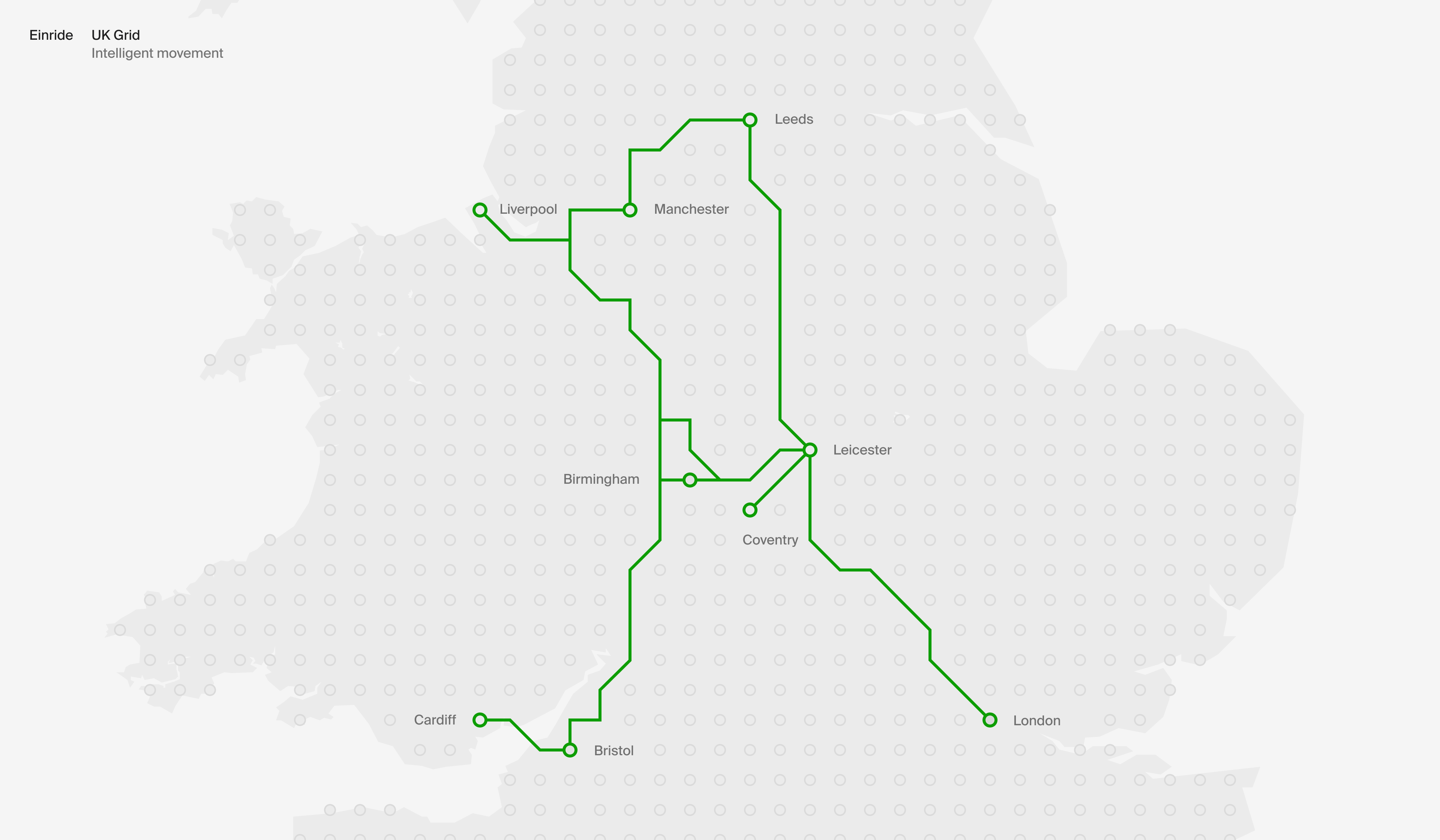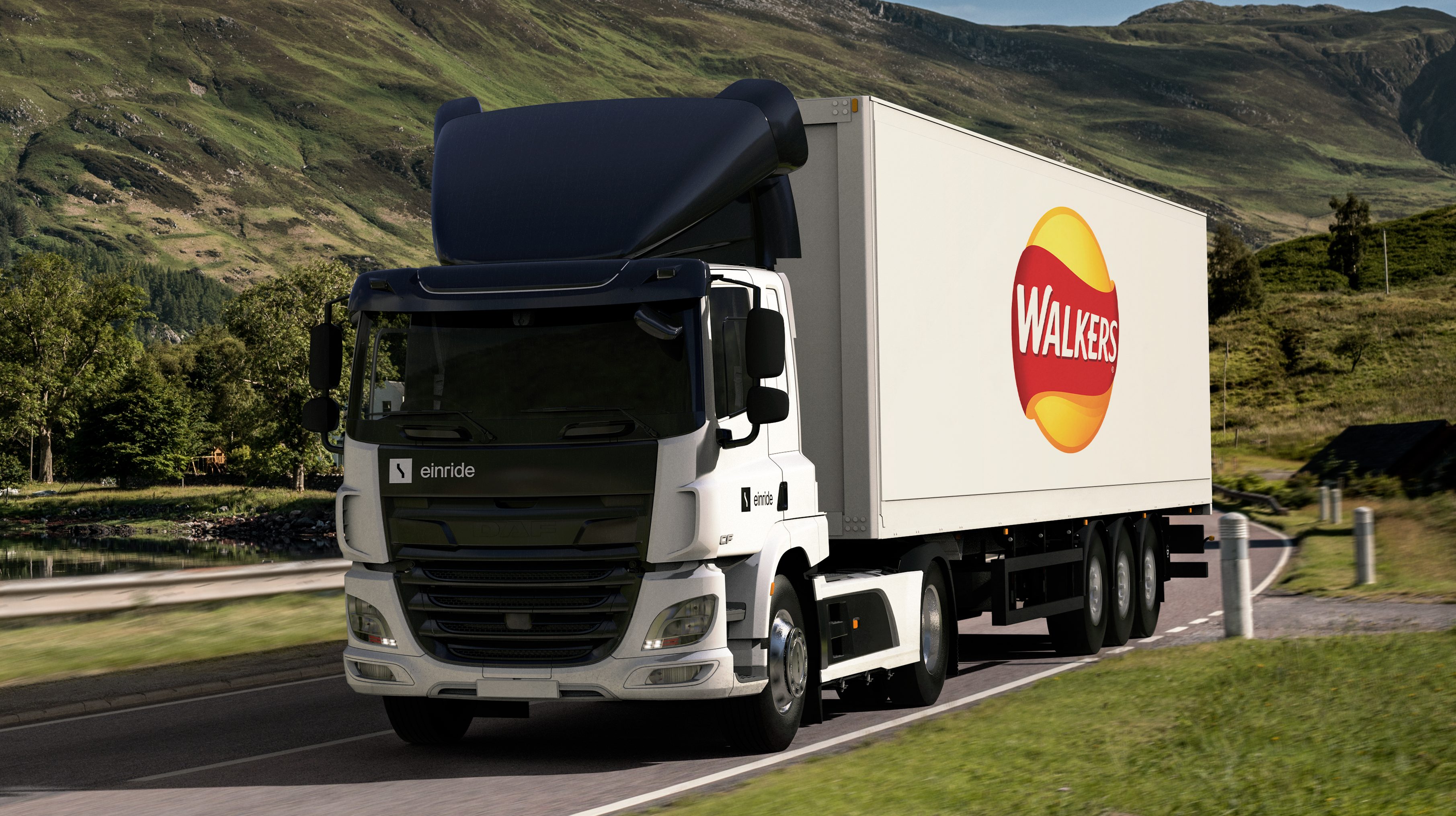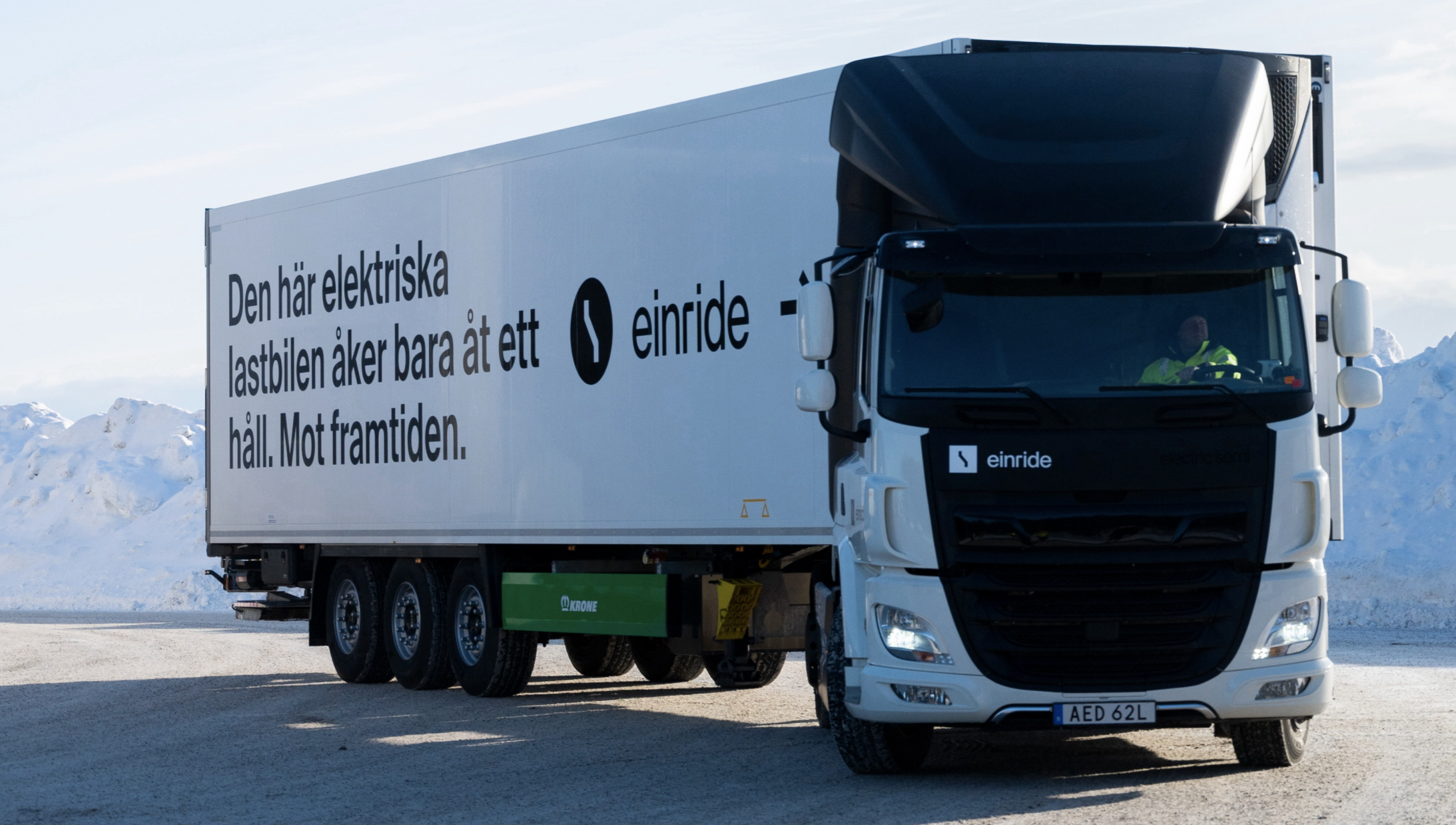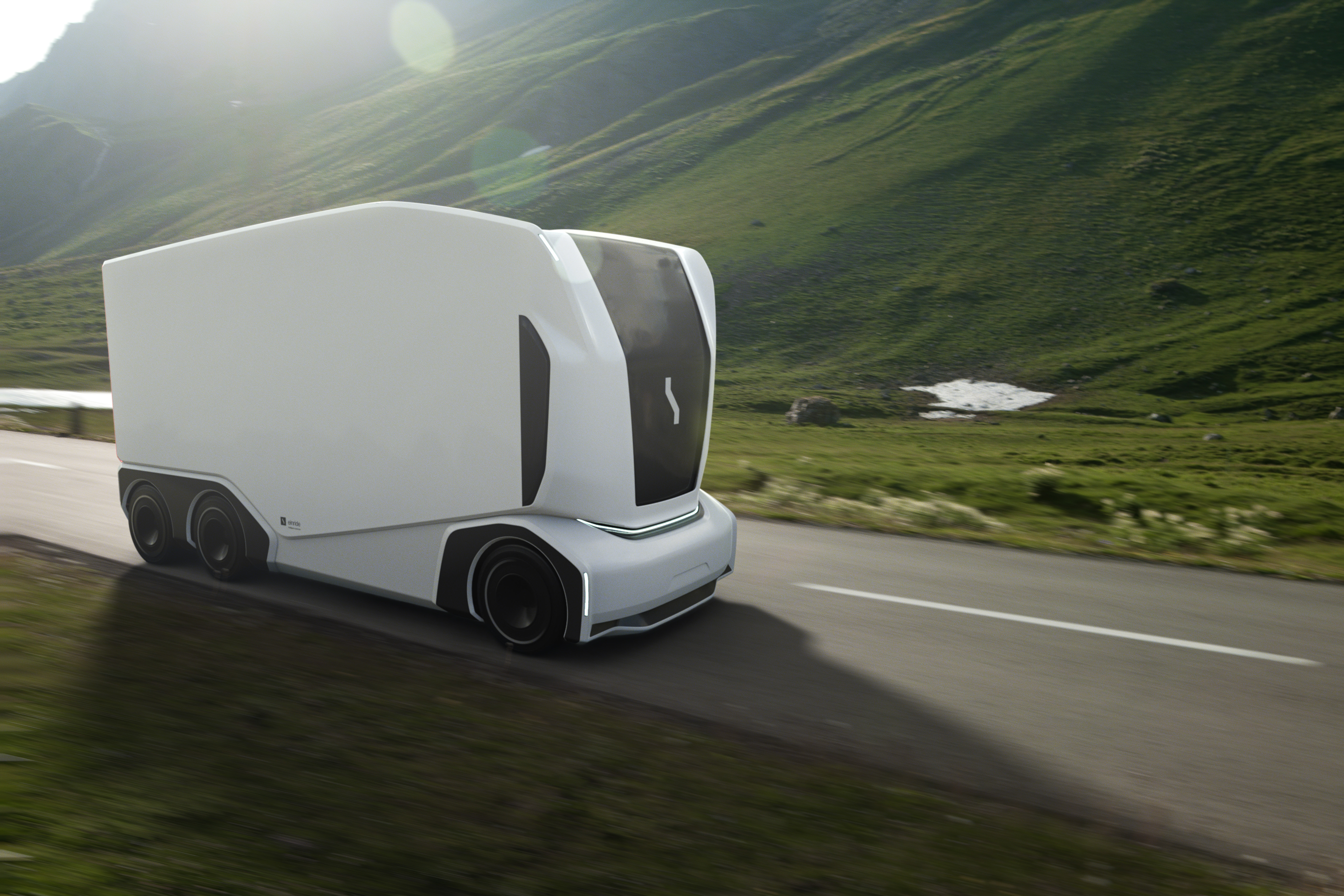The Station is a weekly newsletter dedicated to all things transportation. Sign up here — just click The Station — to receive it every weekend in your inbox.
Welcome back to The Station, your central hub for all past, present and future means of moving people and packages from Point A to Point B.
I’m your host, transportation editor Kirsten Korosec, and yes, I’m still on vacation. But I couldn’t abandon my readers, which means this will be a short and sweet one this week.
One note for all the automotive enthusiasts out there. If you want a peek at what automakers are testing these days, just head to Colorado, specifically Summit County. I’ve seen at least three different vehicles (possibly four), all wrapped in their camo, being tested on some of the paved mountain passes.
Oh and two TC+ stories to flag. Check out this deep dive into Rimac by reporter Jaclyn Trop. The company’s latest fundraise valued the Croatian startup at $2.2 billion, prompting the question: How has this company succeeded where so many other EV makers have struggled? And then read reporter Rebecca Bellan’s report on how ghost kitchens have popped up at college campuses on the backs of delivery bots.
As always, you can email me at kirsten.korosec@techcrunch.com to share thoughts, criticisms, opinions, or tips. You also can send a direct message to @kirstenkorosec.
Micromobbin’

Sooo… Helbiz said it has signed a letter of intent to acquire Wheels, which offers seated scooters and an integrated helmet technology. Like me, you might be wondering (and not for the first time!), What the Helbiz?!
You may recall we covered Helbiz’s first quarter earnings not too long ago, reporting on a balance sheet that showed a company burning through what little cash it had left at a worryingly unsustainable rate. Not to mention all the weird business moves, from micromobility to ghost kitchens to live sports streaming to cryptocurrency, because why TF not? So how are they going to pull off this deal with Wheels?
Well, the deal is obviously “primarily all stock,” so that leads us to question the business model at Wheels if it’s doing poorly enough to take shares in Helbiz as compensation. On Thursday in early morning hours, Helbiz was trading at $0.81, which is down massively from the $10.20 Helbiz opened at when it first debuted last August.
I’m trying to get Helbiz on the phone to talk this one through, so until then, I shall leave you with  .
.
The tech layoffs you’ve been reading about so much? Yeah, it’s hitting micromobbin’ land as well. Just a couple of weeks after Bird laid off 23% of its staff, the next round of industry layoffs is affecting Voi and Superpedestrian, according to LinkedIn posts from former and current employees.
In other news…
Drover AI founder Alex Nesic on why computer vision, what his company does, is super necessary for micromobility.
India is out here trend-setting sales for three-wheelers to sell out ICE vehicles.
Lime has pulled out of operations in South Korea because with no RFP process and annoying regulations, it’s way too chaotic of an environment.
NYC is expanding its e-scooter pilot with Bird, Lime and Veo in the Bronx.
Using its Bicycle Network Analysis tool, People for Bikes released its city ratings for the best places to bike. Notably, many big cities — like Seattle, Brooklyn, San Francisco, Philadelphia, Portland, St. Paul and Detroit — saw small but nice increases in their scores from last year. Surprisingly, the city with the highest Community Survey score (70) was Bentonville, Arkansas.
Superpedestrian and Voi are the latest micromobility companies to lay off workers, and I’m sure they won’t be the last.
UPS is riding around in some fire bike lane-friendly, pedal-powered quad thingos in NYC.
Walmart got the hook up for mid-drive e-bikes.
– Rebecca Bellan
Deal of the week

This isn’t a deal so much as a case study in a SPAC deal gone awry. I’m talking about Bird, the scooter and micromobility company.
As news editor Darrell Etherington quipped, Bird has to fly at a slightly higher altitude — at least if it wants to keep its New York Stock Exchange listing. The company warned via a press release and securities filing that it had received word from the NYSE that its share price was “not in compliance” with the exchange’s requirement that Class A Common Stock for a listed company be at least $1.00 over the course of a consecutive 30-day trading period.
Let’s do a rewind on Bird. In November 2021, Bird ended its first day of trading at $8.40 per share. Bird’s share price has taken a swan dive down to $0.56 a share. That’s 93.37% lower, folks.
Some of the deals that got my attention this week while on vacay …
Laka, a bicycle insurance provider, secured additional funding from Porsche Ventures, bringing its Series A to $13.5 million. The Series A was led by Autotech Ventures and followed by Ponooc, Dutch sustainable mobility investor with close ties to the world’s largest bike seller Pon, and ABN AMRO.
Forvia, the automotive supplier formerly known as Faurecia, increased the company’s share capital by around 705 million euros ($740.9 million) and will use the proceeds to fund the acquisition of German peer Hella, Reuters reported.
Rohlik, an online grocery delivery startup based out of Prague, raised €220 million ($231 million at current rates) in a Series D round led by a new backer, Sofina, with previous investors — Index Ventures and founder/CEO Tomáš Čupr are the two being named — also participating.
Share Mobility, a startup that provides transportation solutions for companies, closed a $12 million Series A led by Iron Gate Capital and Renewal Funds with participation from Employment Technology Fund, JobsOhio, Seamless Capital and others.
Wingcopter, the German drone delivery startup, raised $42 million in a Series A extension led by German retail firm REWE Group and Salvia and XAI technologies.
UVeye, an advanced vehicle diagnostic systems company, received an undisclosed investment from GM Ventures, the capital venture arm of General Motors. UVeye also has entered into a commercial agreement with General Motors, agreeing to work on vehicle-inspection technology projects involving used-car auctions, fleet operations and automotive dealership sales.
Notable reads and other tidbits

Autonomous vehicles
Cruise officially became the first company to offer fared rides to the general public in San Francisco as of late Wednesday. The milestone comes after Cruise received official approval from the California Public Utilities Commission in early June to operate driverless in a commercial capacity.
Einride got the OK to start operating its purpose-built, electric, autonomous pods on public roads in the U.S. The pods are built without a cab for a human and they’ll be hauling goods for General Electric Appliances.
Pony.ai has sampled its autonomous driving controller, which is powered by Nvidia’s Drive Hyperion compute architecture, to customers. What’s more, the company is planning to mass produce the system in Q4 2022.
Electric vehicles, charging & batteries
AlixPartners released its 2022 Global Automotive Outlook and one of the key takeaways is that automakers keen to sell EVs will need to switch their focus from speed to cost. Other nuggets, automakers plan to invest $526 billion toward developing EVs through 2026, up from $330 billion on a rolling five-year period they announced last year.
Arrival‘s van has achieved EU certification and received European Whole Vehicle Type Approval (EUWVTA)
Brightdrop, GM‘s commercial EV unit, delivered to FedEx another 150 electric delivery vans.
Consolidation! It’s time to talk about a wave of consolidation in the EV charging industry.
Ford chose its Valencia, Spain factory over its facility in Saarlouis, Germany, to build “profitable” EVs that meet the demand of European customers. The choice will lead to a “significant restructuring,” Ford said.
GM will join a growing list of automakers focused on streamlining the EV charging process by equipping its models with “Plug and Charge” capability — aka the ability to easily plug in and automate payment at a range of different charging stations.
Redwood Materials is partnering with Toyota to collect, refurbish and recycle batteries and battery materials that can be sent to the Japanese automaker’s upcoming North Carolina battery plant. Redwood has racked up a bunch of partnerships with OEMs, including Proterra, Ford, Volvo and Panasonic, which is supplying batteries to Tesla’s Nevada gigafactory.
Surging demand for this year’s most hotly anticipated EVs is smashing order books and lengthening waitlists. The $60,000 Cadillac Lyriq SUV is the latest model to close its 2023 order book.
In-car tech
The National Highway Traffic Safety Administration has proposed requiring automakers to collect more crash data from event data recorders. These so-called “black boxes” would need to capture 20 seconds of pre-crash data at a higher frequency rate, under the proposal.
Polestar finally added Apple CarPlay to its all-electric Polestar 2 sedan via an over-the-air software update.
Miscellaneous
Volvo Trucks has started testing vehicles that use fuel cells powered by hydrogen. The company claims refueling will take under 15 minutes and range could be as high as 1,000 kilometers (about 621 miles).
VW Group is being pressured by union groups and shareholders to address allegations of human rights violations in the Chinese province of Xinjiang, where it operates a car factory, Financial Times reported.
Tesla
It seems this week we need a dedicated Tesla section. Here it goes
Cars.com says Tesla is the most “American made” vehicle.
Owen Diaz, a Black former worker at Tesla’s Fremont, California assembly plant, rejected a $15 million payout from the automaker in a lawsuit alleging racial abuse by co-workers. The award had been slashed from the original $137 million jury verdict. Diaz’s rejection of the award will lead to a new trial.
Tesla Owners Silicon Valley club released its third and “bonus” part of its interview with Elon Musk.
Tesla’s Austin gigafactory could get a new tunnel courtesy of CEO Elon Musk’s other startup, The Boring Company.
Two former Tesla employees filed a lawsuit against the EV maker alleging that the company did not provide the 60 days of advance notice required by federal law during a recent round of layoffs.
Ride-hail
Revel has expanded its all-electric ride-hail service to Brooklyn.
Uber has re-launched a new version of Uber Pool, called UberX Share, in some cities.
A lawsuit by Uber and Lyft drivers is claiming the companies are violating antitrust law by setting the prices customers pay and limiting drivers’ ability to choose which rides they accept without penalty.
People
Paul Gao was hired to a newly created position of Chief Strategy Officer of Mercedes-Benz Group AG. Gao was most recently a senior partner at McKinsey & Company in Hong Kong, serving both Chinese and global industry clients. Gao will report directly to CEO Ola Källenius.
Trevor Milton, the controversial founder and former Nikola Corp CEO, was hit with a new wire-fraud charge by federal prosecutors.
Tony Tavares, current Caltrans District 7 Chief, was appointed as the new head of Caltrans.





 .
.


